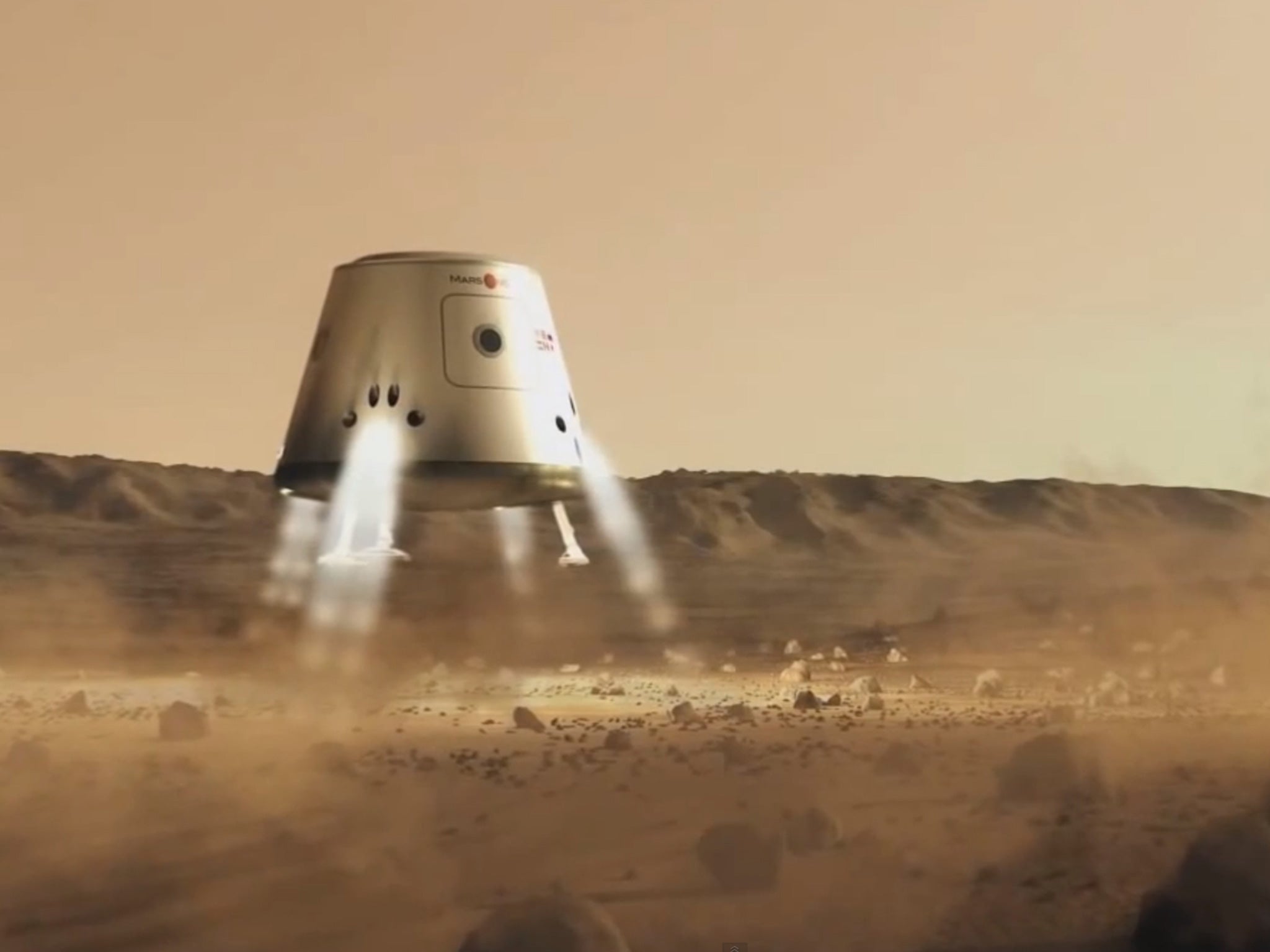Mars One mission is doomed to failure and could endanger the future of science, says finalist
Candidates are being encouraged to donate money to the plan, which needs billions of pounds to finance its mission

The Mars One project is a flawed scheme that could lead people to lose faith in scientists, according to one of its finalists.
Joseph Roche, an assistant professor at Trinity College Dublin who has a PhD in physics and astrophysics, signed up to the one-way trip to Mars at its beginning. But he has since become concerned that the project will never take off and contributions raised will end up being used to fund the Dutch non-profit behind the idea.
Suzanne Flinkenflögel, Mars One’s director of communications, dismissed the article and said that it "contains many false accusations".
Roche’s primary concern is that the leading contenders for the mission are being encouraged to pay to be promoted as candidates, he told journalist Elmo Keep in an interview posted on Medium.
The mission is expected to cost billions of pounds. The company has said that much of the cost will be funded through a reality TV show that will follow the candidates as they go on their mission.
When candidates gain media attention from their appearances, they are encouraged to give 75% of their appearance fees to the group behind the project.
Candidates are promoted within the "Mars One Community Platform" — a site that among other things profiles candidates — by getting points. As well as being given an arbitrary number of points when they get through each round, candidates can boost their ranking by buying merchandise from Mars One or donating money to the project, Roche said.
To get promoted, candidates can buy the jumpers and posters that are sold in the store, or give a lump sum of cash to the mission, Roche said. That puts them higher up in the ranking, and so makes them more visibly in the running for the mission — leading to more media appearances. Roche claims that this means that those that appear in Mars One’s promoted lists of candidates are likely to be those that have generated money, rather than the most likely or successful candidates.
When candidates appear on TV or in interviews, they are asked to give any fee to the Mars One project, according to a "tips for candidates" document for candidates that Roche said was distributed in February. "We do kindly ask for you to donate 75 per cent of your profit to Mars One," the document says, according to the interview.
Mars One said that there are "many round 3 candidates that have never contributed financially beyond the application fee, and there are many that did contribute significantly, but were were not selected to proceed to the next selection round".
Roche said that he had not met anyone from the mission in person, and that he considers that the selection process has been far more limited than might be expected for flying to Mars. Roche claims all he had to do to be selected was complete a questionnaire, upload a video to a website, see a local doctor and have a short Skype conversation where he was quizzed about material he had been sent in advance.

The final 100 candidates have made it through that process, who will now go through selection rounds that “will focus on composing teams that can endure all the hardships of a permanent settlement on Mars”. They will be trained in a copy of the Mars outpost and during that time be tested on their suitability for the mission.
In an interview with The Independent in February, Bas Lansdorp, the man behind the mission, dismissed claims that it was a flight of fancy.
“It will be one of the biggest challenges humans have ever experienced,” Lansdorp said. “But I am convinced we can pull it off. I have never met an expert who didn’t believe our mission was feasible after 15 minutes of talking to me.”
The Independent approached Lansdorp for comment on Roche's claims but at the time of publishing had not been able to respond.
Joseph Roche worries that the mission will be a failure and that it could put the future of space exploration and popular science in doubt.
“My nightmare about it is that people continue to support it and give it money and attention, and it then gets to the point where it inevitably falls on its face,” Roche told Keep in the interview. If it does and “people lose faith in NASA and possibly even in scientists, then that’s the polar opposite of what I’m about.
“If I was somehow linked to something that could do damage to the public perception of science, that is my nightmare scenario.”
Join our commenting forum
Join thought-provoking conversations, follow other Independent readers and see their replies
0Comments